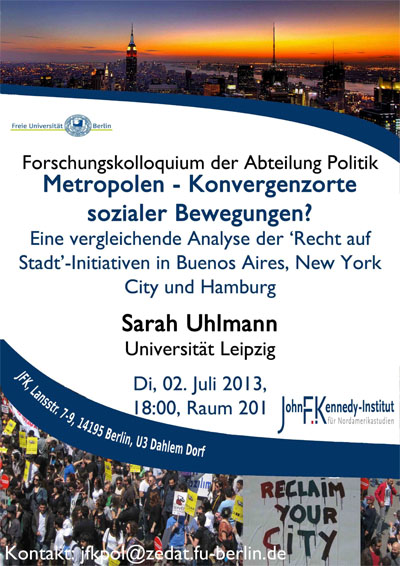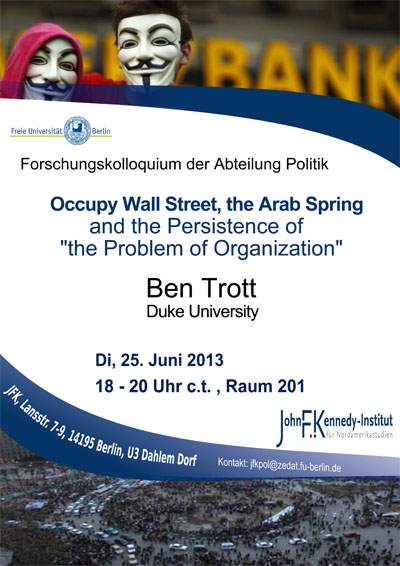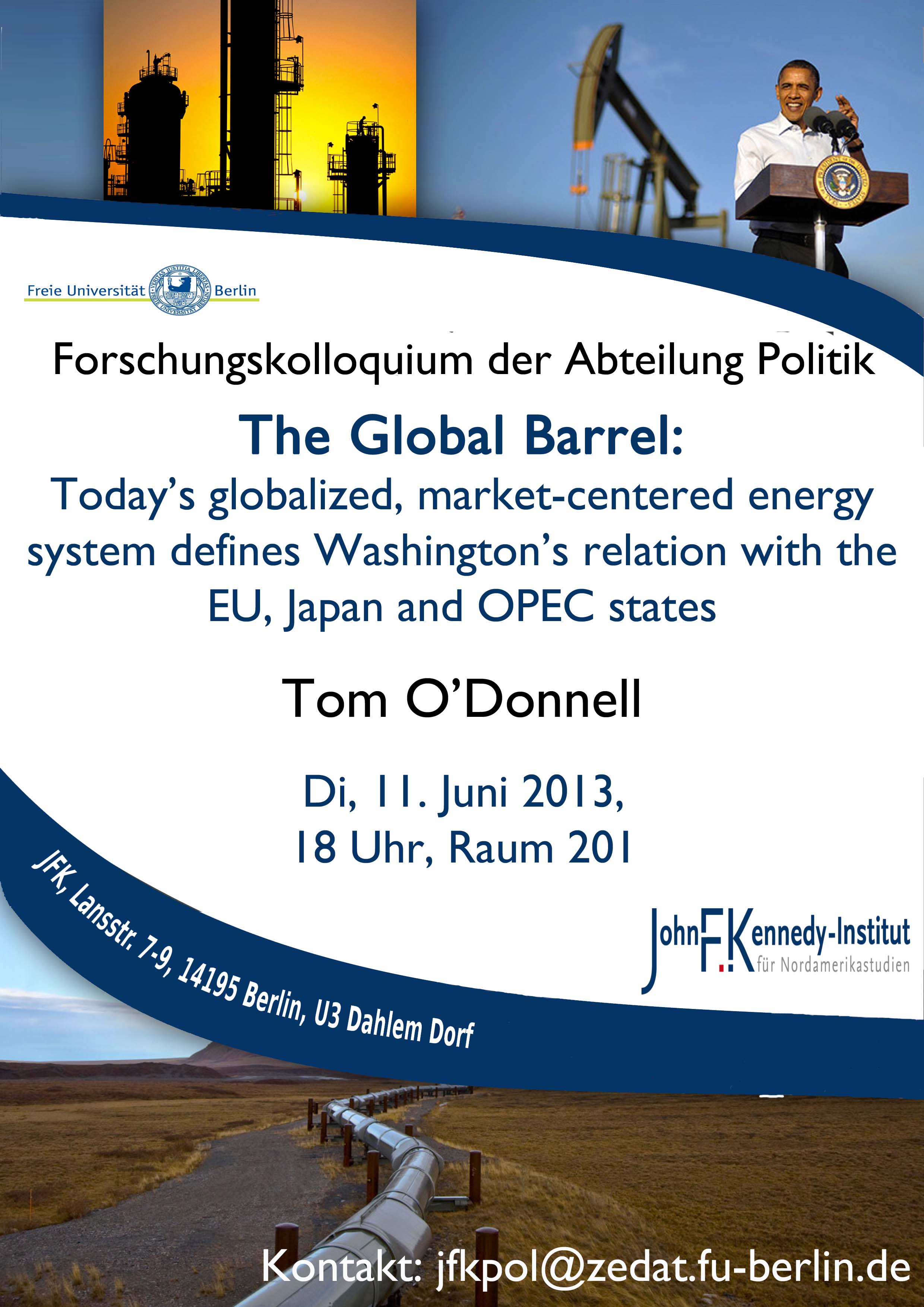Besondere Sorge bereite ihm das Potenzial für Gewalt gestand James K. Galbraith in der Frage und Antwort Runde, die sich seiner Festrede anlässlich des 50-jährigen Bestehens des John-F.-Kennedy Institut für Nordamerikastudien am 28. Juni 2013 anschloss. Die andauernden Konsequenzen der globalen Finanzkrise hätten insbesondere in den südeuropäischen Ländern eine bedrohliche Eigendynamik entwickelt, angesichts derer sich die europäische Politik entscheiden müsse, entweder dringende Schritte zur Stabilisierung der Ökonomie vorzunehmen oder aber Gefahr zu laufen, die Kontrolle zu verlieren und irreparablen Schaden nicht nur an jenen Ländern, sondern auch am Funktionieren der Demokratie in Europa anzurichten. Den ganzen Beitrag lesen »
Publication by Santino Regilme
Our good friend and colleague Salvador Santino Regilme has just published a thought-provoking paper on international relations, globalization, and economic challenges to democratic consolidation:
Bringing the Global Political Economy Back In: Neoliberalism, Globalization, and Democratic Consolidation
Read the abstract and download the paper here (via the FU net and WILEY).
Leaks versus Whistleblowers
Thoughts and Comments on the Importance of Framing in Regard to Inside Sources
Curd Knüpfer, May 30 2013
Journalists are notoriously interested in obtaining “the inside scoop.” To do so, they rely on sources to provide information which they might then pass on to the public. In recent years, inside sources have often come to be referred to as leaks or as whistleblowers. These two terms that might at first glance appear to be somewhat interchangeable and to a certain degree even synonymous, on further inspection turn out to have very different definitions and connotations: The term leak suggests something is spilling out, whereas whistleblower refers to the process of drawing attention to something.[1]
This difference in meaning ties them to very different framing patterns. Political communication scholarship sees a typical and complete “frame” as fulfilling four basic functions, namely: problem definition, causal analysis, moral judgment, and remedy promotion.[2] Conceptualizing leaks and whistleblowers as two competing frame elements quickly illustrates a differentiation in regard to defining a specific problem. Contexts in which the term whistleblower is used will refer to a problem that is external, meaning that the actual reason that caused the metaphorical whistle to be blown will be problematized. The problem, in other words, is the institutional practice. The whistleblower has acted on conscience rather than duty (morally commendable) and the assumption would be that the institution would need to change its practices once these become public.
Contexts in which the term leak is used are suggestive of a problem affecting the institution itself – like a sinking ship – the problem defined here is not the institution or its practices, but rather a matter of faulty construction. Leak therefore might have a higher potential for providing a frame that problematizes the act itself: a leak is something that is potentially dangerous. It is therefore something that aught to be repaired.
It is no wonder then to come across two very different op-ed pieces in The New York Times, both written in response to recent revelations about the White House’s and Department of Justice’s aggressive policies against journalists and their sources.
In a piece that appeared on May 20 2013, three former Justice Department officials defend the Obama administration’s actions and call for policies to “stop the leaks.”
One week later, the writer and journalist Eyal Press refers to the Obama administration’s policies as an attempt to “silence the whistle-blowers.”
These articles present two lines of argumentation which may essentially be referring to the same policies. They do so, however, from different perspectives and thereby advocate competing frames: The perspective of the institution (in this case the DOJ and the US government) sees information that becomes public as a breach in national security. At its worst, this view equates leaking with treason and as directly aiding a, for the most part, unspecified enemy. The other perspective sees transparency of information as a vital precondition to any watchdog or checks and balance role other institutional actors might be able to fulfill in the interest of the public. The question which arises out of this observation is how will journalists refer to these sources in the near future? This is interesting mainly for three reasons:
UPCOMING DEADLINE: Call for Papers: The United States in Crisis?
Submissions for the Annual Meeting of the Political Science Section of the German Society for American Studies will be accepted until May 31, 2013.
The title of this year’s conference is:
The United States in Crisis? Democracy, Politics, Policy, and Political Institutions in an Age of Uncertainty and Risk,
…and you can find any and all additional information here.





 Die
Die